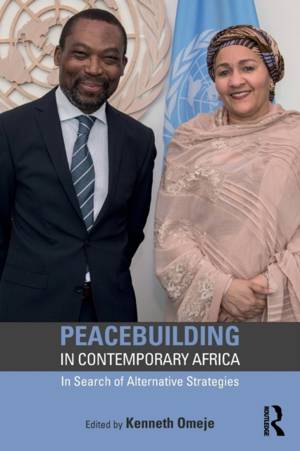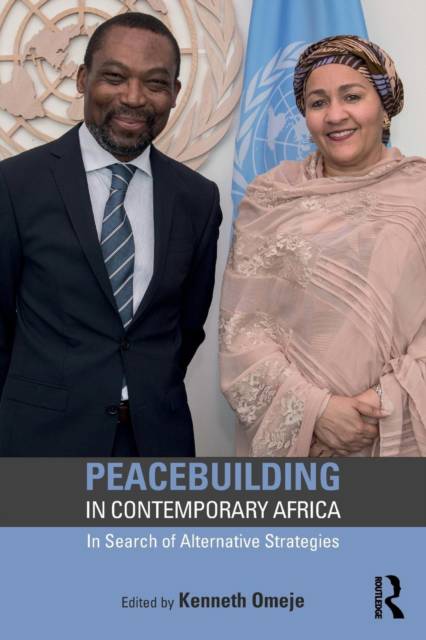
- Retrait gratuit dans votre magasin Club
- 7.000.000 titres dans notre catalogue
- Payer en toute sécurité
- Toujours un magasin près de chez vous
- Retrait gratuit dans votre magasin Club
- 7.000.000 titres dans notre catalogue
- Payer en toute sécurité
- Toujours un magasin près de chez vous
Peacebuilding in Contemporary Africa
In Search of Alternative Strategies
Description
Peacebuilding in Contemporary Africa explores the challenges and opportunities faced by countries and societies transitioning from armed conflicts to peace in contemporary Africa. It evaluates the effectiveness, outcomes and failures of existing peacebuilding initiatives implemented by stakeholders, and proposes new strategies and approaches to facilitate the transition. The book investigates both micro- and macro-level conflicts in various parts of Africa, as well as the efforts made to resolve them and build peace. The book pays particular attention to grassroots-based micro-level conflicts often disregarded in peacebuilding literature, which tends to focus on macro-level, neo-liberal state reconstruction and peacebuilding efforts.
The book adopts an evidence-based, policy-relevant approach to peacebuilding in Africa. The various chapter contributors offer a lucid analysis and critique of some of the prevailing paradigms and strategies of peacebuilding practiced in Africa. Together, the authors recommend innovative strategies to mobilise and coordinate governance institutions and partnerships at all levels (international, regional, national, and local) to prevent conflict escalation in volatile states and advance the rebuilding of violence-affected states and communities.
Peacebuilding in Contemporary Africa
provides a much-needed perspective from African scholars, and will be of interest to students, researchers, policy makers and practitioners with an interest in promoting legitimate policy interventions and sustainable peace in Africa.Spécifications
Parties prenantes
- Editeur:
Contenu
- Nombre de pages :
- 226
- Langue:
- Anglais
- Collection :
Caractéristiques
- EAN:
- 9781138492028
- Date de parution :
- 04-09-18
- Format:
- Livre broché
- Format numérique:
- Trade paperback (VS)
- Dimensions :
- 156 mm x 234 mm
- Poids :
- 349 g






